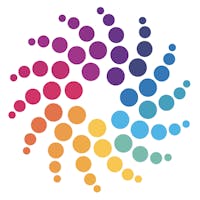Envision hosting a home movie night where each friend arrives with a different set of technology relics: laser discs, VHS tapes, Betamax and even physical slides. To add to the complexity, everyone brings media files in a variety of formats, such as .m4a, .mov, and .wma. The devices, equipped with various players and connectors like VGA, HDMI and Bluetooth, create a chaotic jumble of hardware incompatibility. What was intended to be a fun night of sharing memories on video has devolved into a technology duct-taping project — so much for a party!
In the realm of education technology, a similar disarray unfolds without a standardized system for edtech interoperability. Educators and students grapple with navigating multiple platforms, each with its own unique interfaces and data structures. This lack of interoperability results in a frustrating and fragmented experience, much like the challenges faced during our hypothetical movie night, and teachers and education leaders end up spending time on rostering rather than learning.
Interoperability in education allows different software applications to communicate and work together effectively. Integrating the edtech applications into one language, or standardized format, results in streamlined administrative tasks, enhanced collaboration and a more comprehensive view of student performance and progress. But linking data from the universe of edtech products is more complex than synching a phone to a speaker via Bluetooth.
Recently, EdSurge spoke with representatives from two edtech product providers about the challenge of interoperability and their companies’ decision to implement a data standard through the Ed-Fi Alliance, a nonprofit organization funded by the Michael & Susan Dell Foundation. The Ed-Fi data standard enables different educational technologies, including student information systems (SIS), rostering tools and assessment software, to communicate seamlessly.
Ali DeGeorge, a product line manager who oversees the SIS products at Skyward, says her company recognized the need for a consistent way to manage and send data so that different applications could communicate with each other in the same language. Similarly, Andrea Press, a classroom assessment products technical support supervisor for the aimswebPlus assessment product at Pearson, says her company places a priority on convenience for their customers, and Ed-Fi provides an excellent standard so that organizations can “plug and play” with whatever systems they need.
EdSurge: What is the challenge in the edtech ecosystem that necessitates data standardization? Why is implementation worth it?
Press: There's such broad usage of educational data, not only with school information systems but also how organizations need to hold and transmit data. It is not as seamless of a transition from point to point, ensuring that data is available. When we get into situations where we can't make those connections seamlessly, the school administrators lose out on time and money as they attempt to not only perform their required data collection but also create a successful classroom environment for their teachers and students. We are spending too much time troubleshooting data connection problems, which means the information that teachers and students access is not in real time.
DeGeorge: Exactly! If you're utilizing a custom API [application programming interface] or a solution built by two different companies, any vendor that wants to integrate will also have to implement that solution so that all the companies can communicate. The standard allows for a universal language; you can easily interact with other companies because you’re speaking the same Ed-Fi language.
Press: When you have so many different vendors that you're trying to pass information through, and every vendor speaks a different language, that becomes very difficult. Implementing a data standard really offers us the opportunity to be a very easy vendor to work with. It’s easier for our partners to set up systems and retrieve information. They don’t have to pay somebody extra to figure out the different languages.
What challenges did you face in the implementation process, and how did your team deal with those?
DeGeorge: One of our challenges was ensuring that we were consistent across the company regarding how we were outlining, crosswalking [the process of mapping equivalent or near-equivalent elements between different data sets] and setting up our implementation. Skyward has different teams that handle different areas of expertise, such as scheduling teams or grading teams, and Ed-Fi covers a wide range of all of that. Despite each team feeling confident in their implementation, the key question was whether we maintained consistency and alignment across all teams.
We created a team — what I deemed Ed-Fi Black Ops — that manages the framework of the implementation. There was a need for more technical training within our company to grasp concepts around interoperability, such as the differences between non-state and state implementations. We started by documenting everything, which led to building out this consistent framework. Also, we added an Ed-Fi session to our Skyward conferences so that anyone from the district could learn more about walking through a configuration, setting up an application or understanding how to crosswalk. Change is hard on anybody, and the process does take time. We want to help districts understand the benefits of implementation and offer what we have learned to make that transition smoother.
Press: Yes, it is important to document everything! We have spent five or six years building this database to support the implementation effort. We want to make sure the customer understands what to do next or where to go from here; we want to be a good partner and support them in the process. We need to not only have the information available to share with customers but also disseminate it in a way that’s understandable by providing training sessions, documentation and videos. This catalog of information has taken a bit of time [to develop] to deal with the nuances of ensuring that everybody has what they need. There were hard lessons learned in the process, but the challenges spilled out into enhancements and improvements.
DeGeorge: I think it is important to know, as a vendor, that other product providers have faced similar challenges. When I first attended the Ed-Fi Summit, I thought it was awkward to be in a room with other vendors that were essentially major competitors. However, the Ed-Fi Alliance has created this community where we can all discuss our implementation processes and learn from each other. Now, I feel confident in those environments and have no issues speaking to or in front of any vendors, even if they are major competitors.
What is the future of interoperability?
DeGeorge: I think we will see continued growth in how school districts can communicate with each other, house student information and share that information with teachers. As a result, we will see real changes happen in the classroom; that’s really our end goal here. It’s not just about allowing our companies to communicate with each other. It's that automated process of getting important data into the hands of the people who can make an impact. It’s about the real-time data that allows teachers to intervene with a student to ensure graduation and long-term success.
Press: Interoperability is about more than just the technical way systems communicate. We're not just talking about lines of code; we're talking about real people — students — whose lives are affected by this. It's collecting those pieces of data from the demographics to be able to support not only your staff but also your students in a way that is going to improve their lives.



